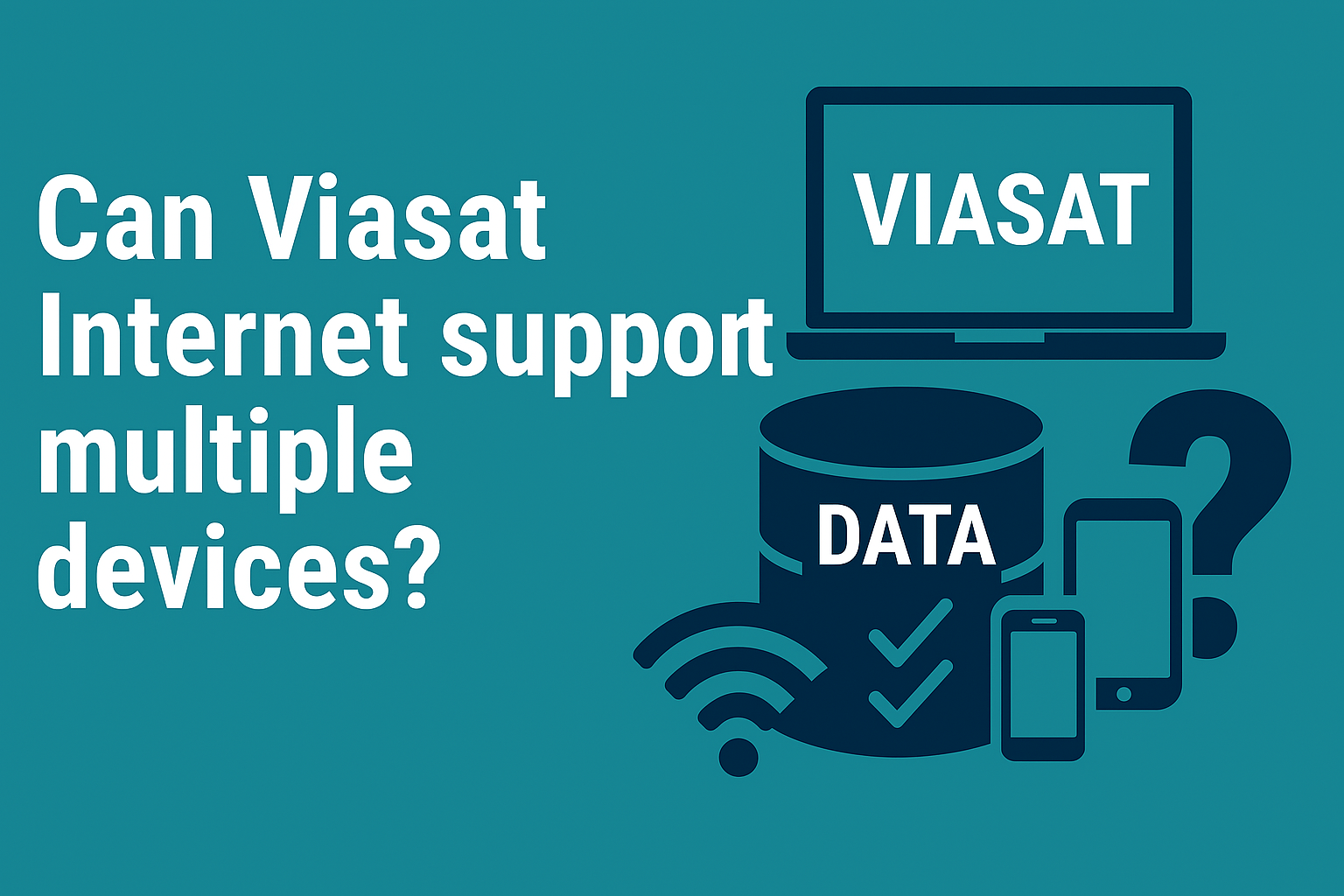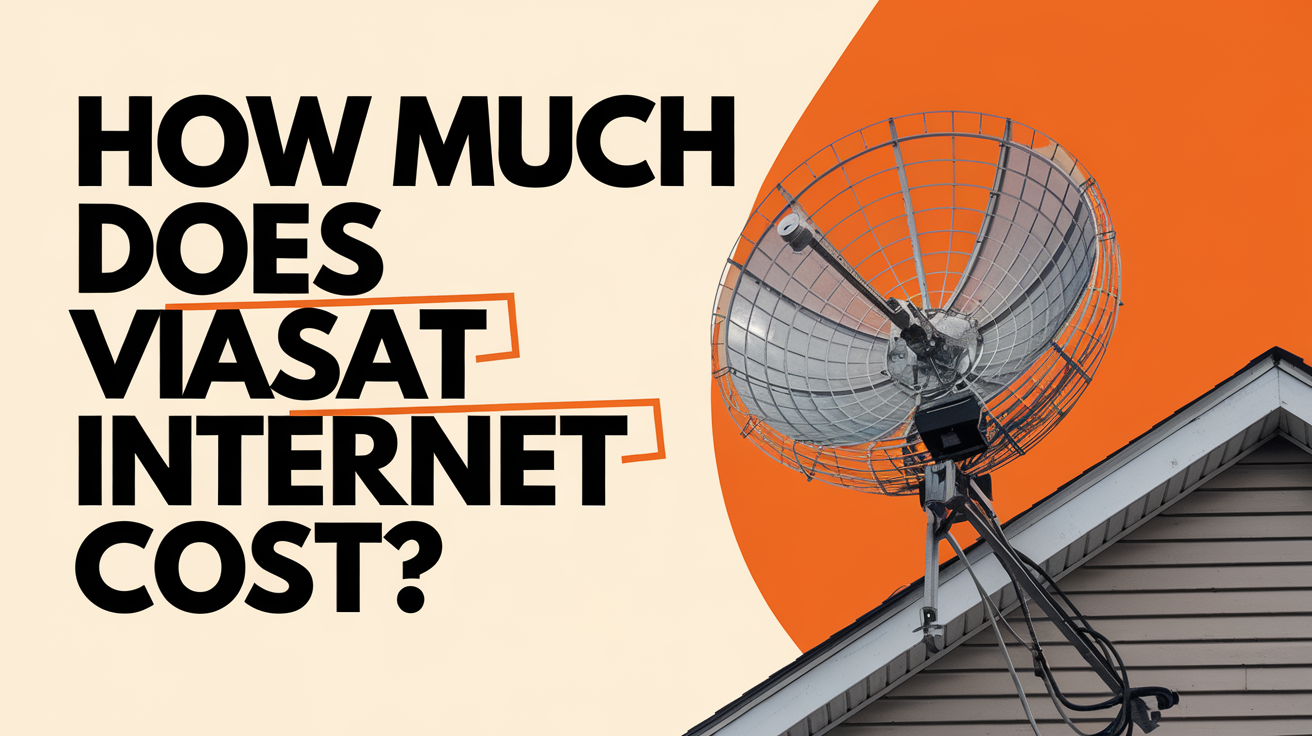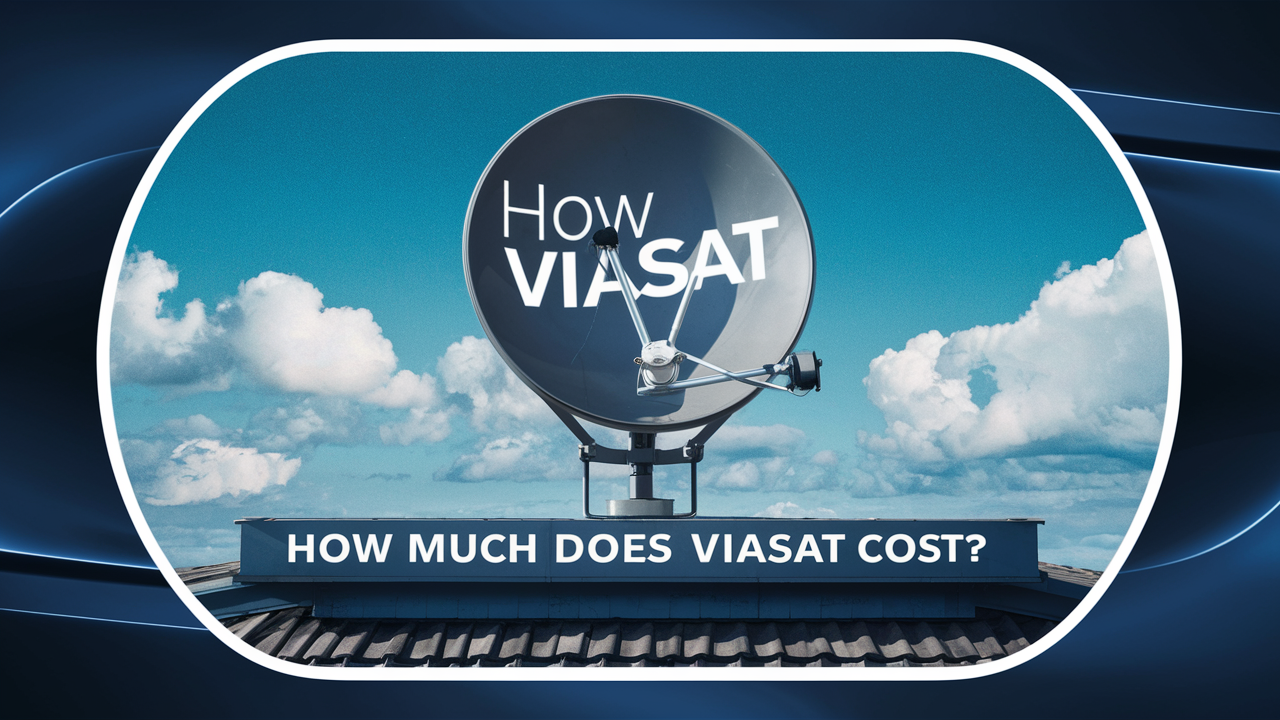-
Posted on: 15 Jul 2024

-
In today's interconnected world, most households have multiple devices running simultaneously — smartphones, tablets, smart TVs, laptops, game consoles, smart home gadgets, and more. A reliable internet connection that can support multiple users and devices is no longer a luxury; it's a necessity. But can Viasat Internet handle that demand?
Viasat is a satellite internet provider that offers nationwide coverage, especially in rural and underserved areas where traditional cable or fiber internet is unavailable. While Viasat is a great option for many, especially those with limited choices, it’s essential to understand how it performs when multiple devices are connected at once.
Understanding Viasat Internet Technology
Before diving into how many devices Viasat can support, it's helpful to understand how the service works. Unlike cable or fiber, Viasat delivers internet via satellite. A signal is beamed from a satellite in geostationary orbit (~22,000 miles above Earth) to a satellite dish installed at your location. This signal is then translated into usable internet via a modem/router setup inside your home.
Factors That Impact Multi-Device Performance on Viasat
Several key variables influence how well Viasat supports multiple devices:
- Plan Speeds: Viasat offers various plans with speeds ranging from 12 Mbps up to 100 Mbps (depending on location).
- Data Thresholds: Some plans include unlimited data, while others may slow your speed after a high-speed data limit is exceeded.
- Latency: Satellite internet has higher latency (~600 ms or more) than cable or fiber, which affects real-time activities like gaming or video conferencing.
- Bandwidth Sharing: All devices on your network share the same connection, which means more devices = more demand on available bandwidth.
Viasat Internet Plans and Multi-Device Compatibility
Here’s how Viasat’s plans perform when used with multiple devices:
Plan Name Download Speed Best For Device Support Estimate Viasat Unlimited Bronze 12 12 Mbps Basic browsing, email 1–2 devices Viasat Unlimited Silver 25 25 Mbps Streaming in SD, browsing, light work-from-home 2–4 devices Viasat Unlimited Gold 50 50 Mbps HD streaming, downloads 4–6 devices Viasat Unlimited Platinum 100 100 Mbps Multiple HD streams, large file downloads 6–10 devices Common Scenarios and Viasat Performance
1. Streaming
Viasat supports video streaming, but the number of streams you can run depends on your speed tier. For instance, SD streaming requires 3–4 Mbps per device, while HD needs around 5–8 Mbps. With the Gold 50 plan, you could potentially stream HD on 2–3 devices without much buffering.
2. Video Calls & Remote Work
Video conferencing platforms like Zoom or Microsoft Teams work fine on Viasat’s higher-tier plans, but latency can cause delays. Multiple people on calls simultaneously may experience lag unless using the Platinum 100 plan.
3. Online Gaming
Due to high latency, real-time multiplayer gaming is not Viasat’s strong suit. Turn-based or download-heavy games are more suitable.
4. Smart Home Devices
Smart bulbs, thermostats, cameras, and voice assistants generally use minimal bandwidth. Viasat can handle several of these devices in the background while other tasks run concurrently.
How to Optimize Viasat for Multiple Devices
Even if you're on a mid-tier plan, there are several strategies to maximize your Viasat performance across multiple devices:
- Schedule large downloads: Run system updates or large downloads during off-peak hours or when fewer devices are online.
- Use Quality of Service (QoS): Some routers allow you to prioritize traffic for certain devices or applications.
- Disconnect unused devices: Idle smart TVs or tablets may still consume background bandwidth.
- Upgrade your plan: Consider a higher-tier Viasat plan if you consistently run 4+ devices at once.
Alternative Options for Heavy Multi-Device Households
If your household requires ultra-fast speeds with dozens of devices streaming, downloading, or gaming simultaneously, Viasat may not be your ideal long-term solution. You may want to explore:
- Starlink: Another satellite option with lower latency and higher speeds in some areas.
- Fixed Wireless: If available, this offers better latency than satellite.
- 5G Home Internet: Rapidly expanding and great for multi-device use if coverage exists.
- Fiber/Cable: Ideal for households with 10+ active devices at once.
Is Viasat Good for Families?
Yes — especially for small to medium families who engage in moderate internet usage like streaming, browsing, emailing, and school work. It’s less optimal for high-demand households where multiple 4K streams, gaming, or simultaneous Zoom calls are the norm. However, when optimized correctly and paired with the right plan, Viasat can offer a balanced internet experience for families with multiple users and devices.
Conclusion
So, can Viasat Internet support multiple devices? The answer is: Yes, it can — but with caveats. Device support largely depends on your chosen plan, how heavily each device consumes bandwidth, and how you manage your home network. For rural homes and off-grid locations, Viasat is often the best (and only) high-speed option available. If you match your usage with the right plan, optimize device usage, and manage expectations, Viasat can definitely support multiple devices in your household.
FAQs About Viasat Internet and Multiple Devices
1. How many devices can Viasat support?
Depending on your plan, Viasat can support anywhere from 2 to 10 devices. The Platinum 100 plan is ideal for larger households with 6–10 connected devices.
2. Does streaming affect other devices on Viasat?
Yes, streaming uses a large portion of bandwidth, which may slow down other devices if you're on a limited-speed plan. It's best to limit HD or 4K streams to 1–2 devices at a time on mid-tier plans.
3. Can I use a mesh Wi-Fi system with Viasat?
Yes. A mesh Wi-Fi system can help extend coverage and manage traffic better in multi-room homes, improving connectivity for multiple devices.
4. What’s the best Viasat plan for multiple users?
The Viasat Unlimited Platinum 100 plan is the most capable for homes with heavy internet usage and multiple simultaneous users.
5. Can smart home devices slow down Viasat Internet?
Not typically. Most smart home devices use minimal bandwidth. However, devices like smart security cameras can consume more data if actively streaming.





